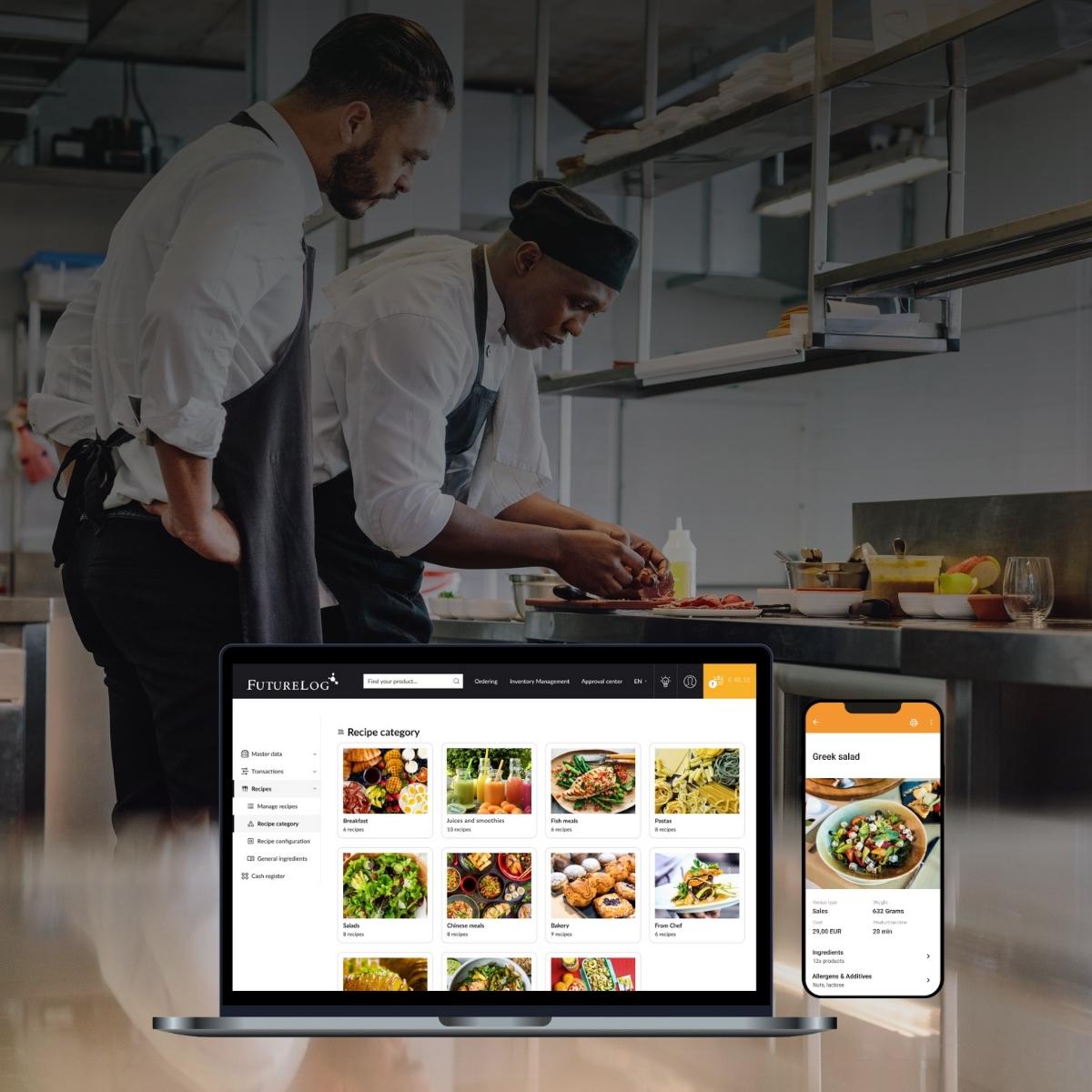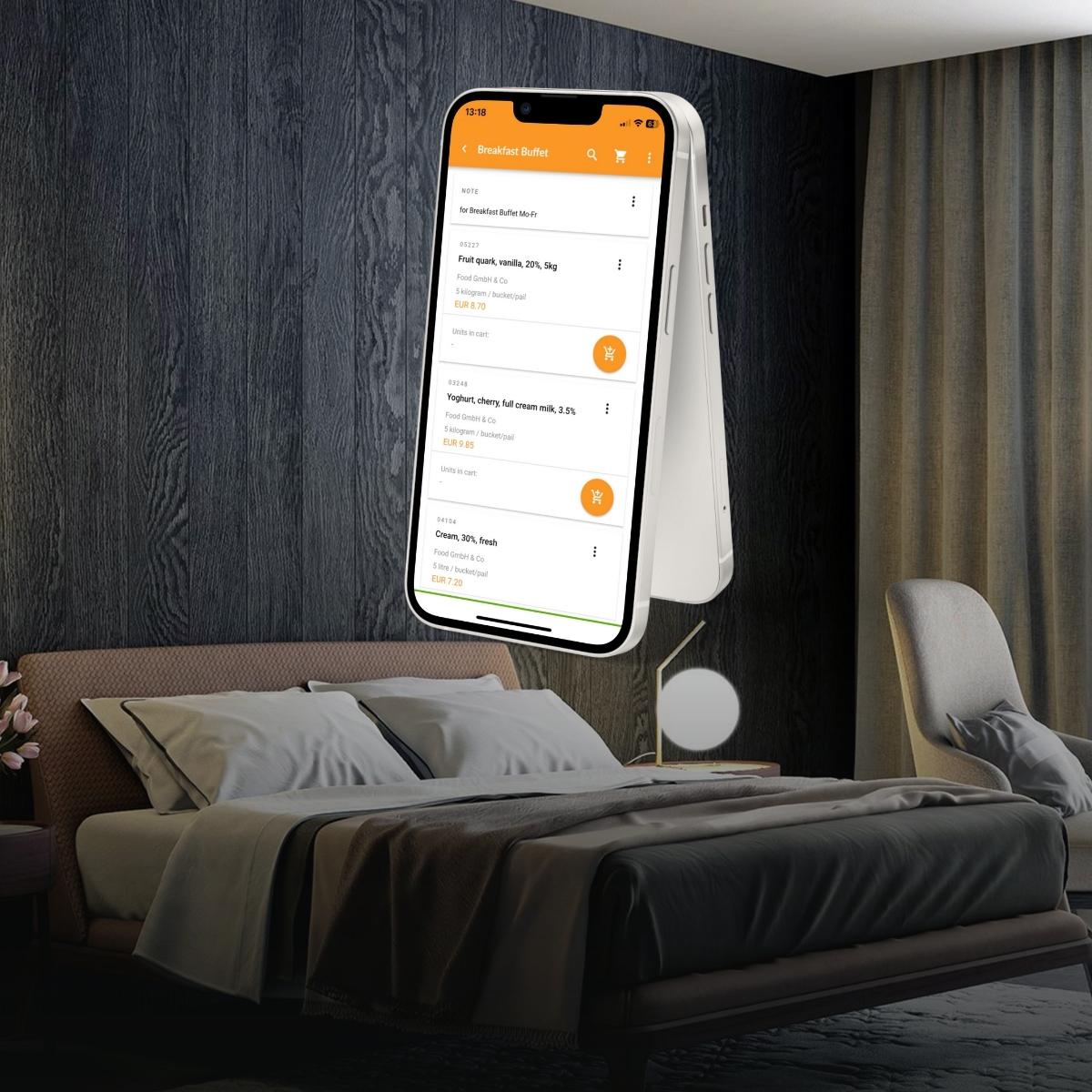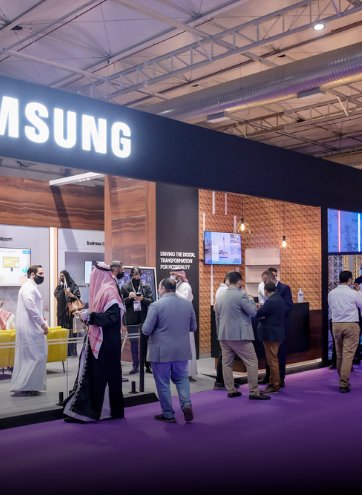10th August 2023
Welcome to an exclusive Q&A session with FutureLog Middle East, a trailblazing force in the realm of hospitality technology solutions. Join us as we delve into the dynamic landscape of Saudi Arabia's burgeoning hotel and hospitality sector, where innovation meets luxury, and the future is being shaped by the 4th industrial revolution, AI, and IoT. Discover how these cutting-edge advancements are redefining guest experiences, optimizing operations, and setting new standards for sustainable excellence. In this thought-provoking dialogue with FutureLog, we explore the fusion of technology and hospitality, where tomorrow's possibilities are realized today.
Nimirta H Lulla,
Vice President of Operations
Middle East and Africa at FutureLog Middle East FZ LLC

● How would you describe the current hotel and hospitality landscape in Saudi Arabia at the moment and what impact is the 4th industrial revolution, AI and IoT creating in this space?
Saudi Arabia’s hotel and hospitality landscape is a very exciting space right now, and the recent announcements regarding the Rua Al Madinah Project and the NEOM project are just two examples of the innovative strides being made in the growth of the industry. Alongside that, the initiatives being undertaken by The Saudi Vision 2030 Project are attracting a lot of attention and are sure to make a significant economic, cultural, and social impact. As hospitality tech providers, we will be watching these developments with great interest.
This rapid growth of the KSA’s hospitality industry signals a tremendous opportunity and appetite for technology and solutions that are driven by AI and IoT. Designing a hotel stack from a completely “blank slate” is a very enviable position to be in, as they will not be restricted by legacy solutions or outdated hardware, which is so often a challenge for hoteliers.
With that in mind, the upcoming hotel tech stacks will be agile, scalable, easily integrated and cloud-based, and new hotel developments will have their pick of cutting-edge technology and AI-powered solutions to choose from.
Since sustainability is a key trend in the hospitality industry, it’s the perfect opportunity to make eco-conscious decisions in the construction and design of new properties, with IoT playing a huge role in the management and monitoring of water and energy consumption, and smart technology instrumental in optimising in-room guest preferences for lighting, climate control etc.
From an operational perspective, the value of investing in technology that simplifies workflows, consolidates data, brings transparency to transactions and connects processes is growing increasingly clear, particularly to hotel teams with fewer resources.
Whether it’s using RPA (Robotic Process Automation) for invoice processing or AI to make smart suggestions based on purchasing trends, technology such as FutureLog’s suite of solutions for creating automated, seamless processes for hotel teams is in demand. Our recipe management tool is designed with today’s busy F&B teams in mind, offering a flexible, intuitive solution for the creation and management of recipes and menus. Automated stock decrementation and recipe scaling enables teams to quickly adapt according to increased or decreased demand, so that guests can always enjoy their favourite dishes and product wastage is minimised.
● What are some of the biggest drivers when it comes to incorporating technology within KSA’s hospitality sector?
With the high volume of new hotels in the pipeline, competition in the KSA market is likely to be a key driver. The eyes of the world will be on these new developments and hotels will seek unique ways to stand out from the crowd.
Across the broader travel industry, guests are growing more accustomed to high-tech digital solutions across their journey, e.g., biometric identity checks at airports. With the travel tech benchmark now set high, meeting and surpassing the ever-evolving guest expectations will also be a driving factor for innovation in hotels. World-class personalisation and a truly memorable guest experience are the expectations, so all of the process conducted “behind-the-scenes” will need to be frictionless, seamless and connected in order to support hotels in that delivery.
Optimisation of spend will also continue to be a key driver of technology, and opportunities for cost-saving will remain a focus when evaluating investments in tech solutions, i.e., cloud-based tools that are scalable and easily integrated.

Additionally, technology that facilitates the collection and analysis of transparent, centralised data is also essential for the generation of actionable insights, supporting hotels with smarter, more informed decision-making and helping them to optimise their bottom line while driving value for their owners. For example, our eprocurement tool offers “best price” insights to indicate alternative pricing options and facilitate easy substitution, and our connectivity with POS platforms ensures efficient, automated stock decrementation that helps our customers to minimise the risk of over-ordering while combating food wastage.
● With the rise in tourism in Saudi Arabia and the prevalence of the savvy guest, what new tech trends are we seeing that can improve the overall guest/customer experiences? (Can you provide specific examples?)
The hospitality industry’s recovery from the global pandemic has included a rise in bleisure travel; the blend of business and leisure, with remote working quickly becoming the norm.
As a tourist destination growing in popularity, visitors to Saudi Arabia will likely look for options to combine their business trips with some vacation time for an immersive, culture-rich experience.
From ordering room service via a mobile app to their reliance on reliable, speedy WiFi connectivity, a digital-first, high-tech experience is expected by the typical bleisure guest. This digital-first expectation is also becoming more prevalent amongst hotel teams too, particularly amongst the younger generations of employees. They expect to have access to intuitive, native mobile apps that support them in working quickly and efficiently while on the go; an expectation that is fulfilled for FutureLog’s hospitality customers.
● Based on any research, what would you say tourists want when it comes to the ideal hotel experience and how can tech best facilitate this?
Making a generalisation is difficult, as delivering the right balance between technology and human interaction for the ideal hotel experience will vary according to hotel category and guest segment. For example, guests staying at a traditional, ultra-luxury hotel are likely to expect more human contact during their check-in process compared to guests staying at a modern, mid-scale hotel where a digital check-in and self-service kiosk might be more appreciated.
However, regardless of the type of accommodation, all guests typically share several expectations in common; value for money, good service (whether it’s in-person or virtual), a clean environment, and a smooth, seamless stay from start to finish. The seamlessness aspect is particularly important and one that holds relevance for both the guest and the hotel team.

● How is AI, the adoption of data analytics solutions and big data, and smart programmes being used in the hospitality industry to maximise revenue, increase operational productivity, and ensure energy efficiency?
One of the biggest challenges faced by the hospitality industry has been the siloing of data in the organisation. When tools and technologies are not connected and do not support the exchange of information, it leads to inconsistent, incomplete data and inefficient processes.
Having a centralised, transparent overview of ordering, spending, approval workflows, suppliers and inventory across all outlets and properties and is crucial for an efficient, optimised approach to the procure-to pay journey. With 20+ years of experience developing technology for the hospitality and gastronomy industries, we understand the need for automation, transparency and analytics. From a streamlined ordering process and intuitive inventory management to menu engineering and digital invoicing, we help our customers to digitally transform their entire procure-to-pay journey, ensuring secure, seamless connectivity with suppliers, actionable insights through our Business Intelligence tool and optimised spending.
● What hotels are leading the charge when it comes to incorporating AI, robotics and smart solutions?
There are many inspiring examples of innovation in the hospitality at the moment. If we look to sustainability and green tech, then Accor’s commitments to reducing their carbon emissions and achieving net zero by 2050 has set an admirable precedent for the industry.
Another example comes from Marriott and their recently announced collaboration with Honeywell to improve the intuitive in-room guest experiences and energy savings.
When it comes to AI, IHG’s collaboration with Josh.ai will see the use of natural language processing to create an AI-managed, voice-controlled guest bedroom.
For robotics, one example that springs to mind is the collaboration between Hilton and PUDU Robotics to create service robots in their hotels. Also well-known for their advances in robotics is YOTEL, and with their first hotel now signed in KSA, it will be one to watch.
● Outlook: What new technology will emerge in the industry to significantly improve the guest/customer experience?
Any technology that helps hotel teams to be more efficient and reduces the amount of time they spend on mundane, repetitive tasks will have a positive impact on the overall guest/customer experience.
For us, the answer lies in the end-to-end automation of the procure-to-pay journey. The traditional method of handling these activities was paper-based and time-consuming, lacking in transparency and prone to human error. However, bringing automation to these daily workflows not only saves time and resources by freeing up hotel teams to spend more time with their guests, but also helps hotels to make smarter data-driven decisions and optimise their spends.



